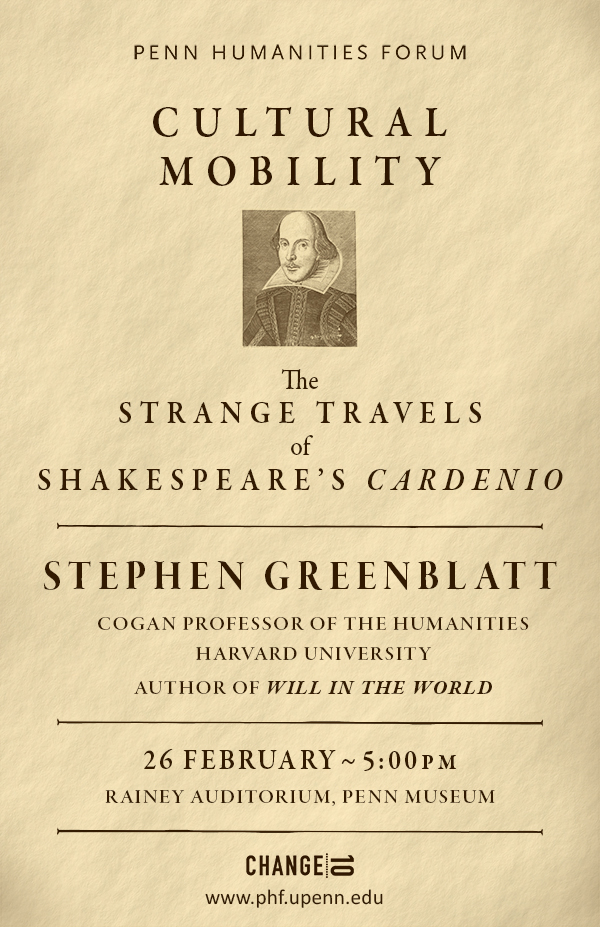2009 Graduate Humanities Forum Conference Keynote
Near the end of his career, Shakespeare wrote three works with his younger colleague, John Fletcher: Henry VIII, The Two Noble Kinsmen, and a lost play, Cardenio, a tragicomedy of sexual jealousy and betrayal whose plot he took from part I of Cervantes’s Don Quixote.
Professor Greenblatt, author of Will in the World and founder of the critical movement, The New Historicism, has written a modern version of Cardenio and instigated several other adaptations in various parts of the world. Join him as he discusses the mobility of plots and themes from artwork to artwork, the core mechanism of cultural change.
Stephen Greenblatt is a theorist, literary critic, and scholar of renaissance literature. He received his B.A. and Ph.D. from Yale, and M.Phil from Cambridge. He has taught at Harvard since 1997, and was named Cogan University Professor of the Humanities in 2000. Before joining Harvard, Greenblatt was the Class of 1932 Professor at the University of California, Berkeley.
Considered the father of New Historicism, Greenblatt favors the term “cultural poetics” to describe the attentiveness to historical context which he joins to an appreciation of texts’ literary qualities. A specialist in Shakespeare, Greenblatt’s own play “Cardenio,” co-written with Charles Mee, premiered at the American Repertory Theater in Cambridge, Massachusetts in 2008.
Greenblatt has written dozens of scholarly articles and ten books, including Will in the World (2004; a New York Times bestseller), Hamlet in Purgatory (2001), Marvelous Possessions (1991), Learning to Curse (1990), Shakespearean Negotiations (1988; winner of the MLA’s James Russell Lowell Prize), and Renaissance Self-Fashioning (1980). He has also edited many major collections and anthologies, including the Norton Shakespeare and the seventh edition of The Norton Anthology of English Literature (1997 and 2000), Practicing New Historicism (with Catherine Gallagher, 2000), New World Encounters (1993), and Redrawing the Boundaries (1992). He is a former president of the Modern Language Association, and a fellow of the American Academy of Arts and Sciences, the American Philosophical Society, and a permanent fellow of Berlin’s Institute for Advanced Study. He is the founding editor of the journal Representations.



